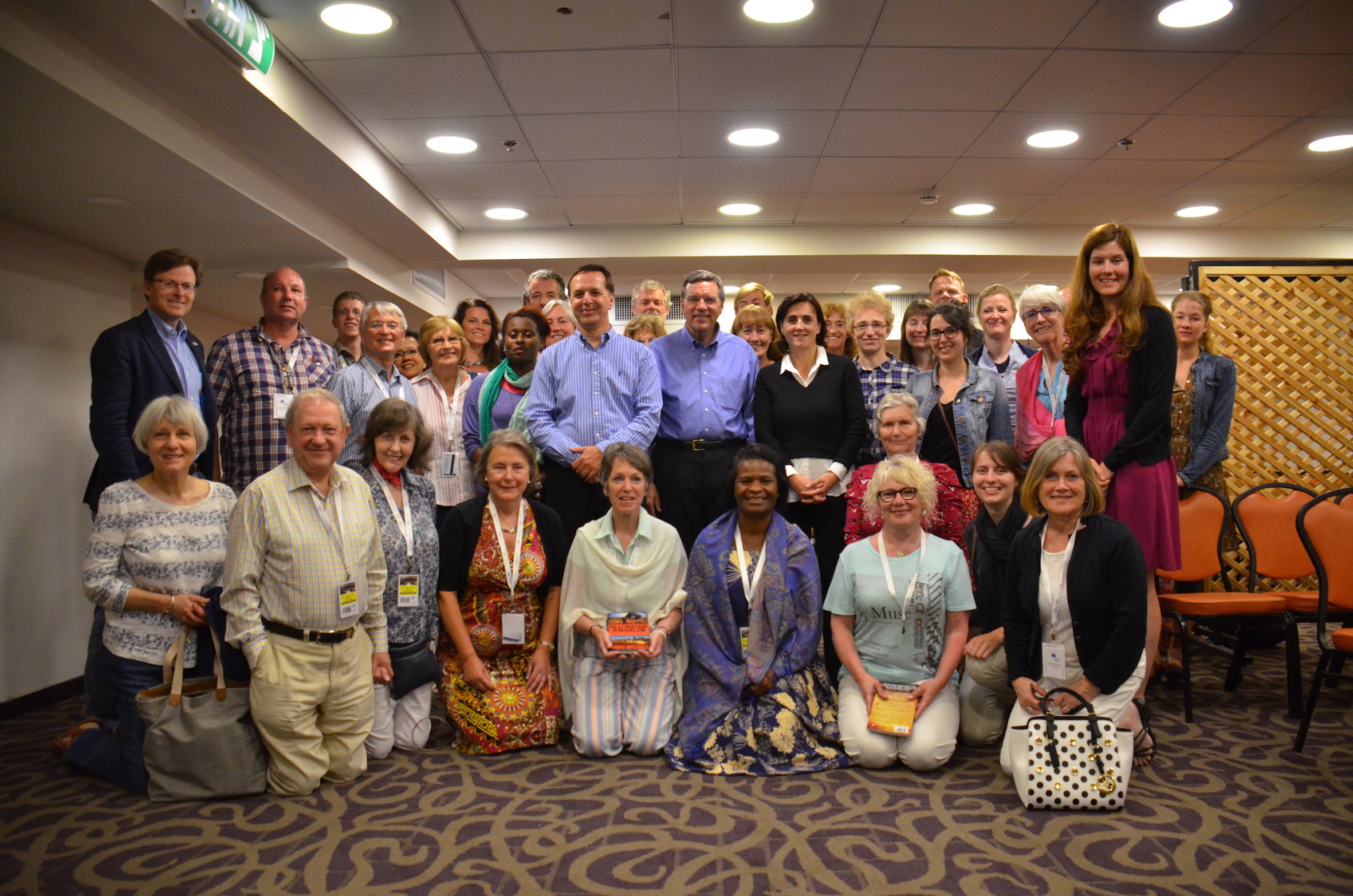
Youth Community

Aid Ukraine

Order Why Israel Resources

Support our ministry

Subscribe newsletter

Israel & Christians Today

Biblical understanding about Israel
European Coalition for Israel (ECI) Educational Tour to Israel 2015 - Raising a new generation of advocates for Israel, the Jewish people and Arab Palestinians
From 13th – 18th May 2015, the European Coalition for Israel (ECI), in partnership with Christians for Israel International and Keshet Educational Travel, organized its inaugural geo-political visit to Israel and the Palestinian territories.
The program was led by Perrine Dufoix (ECI Director – Europe) and Andrew Tucker (ECI Legal Counsel), in close cooperation with Marnix van Ede (Keshet) as program coordinator and Moshe Gabay (Keshet) who acted as guide.
Thirty-five participants from UK, France, Germany, Netherlands, Sweden, Denmark, Australia and US took part in this unique 5-day program. Most of the participants had been in Israel several times, and had participated in the Global Prayer Call Conference from 10th-13th May in Jerusalem. About half of the participants were “young adults” (under the age of 45).

| The ECI group with journalists Chris Mitchell and Khaled Abu Toameh |
The primary goals of the program were:
a) to gain a better understanding of Israel as a Jewish and democratic state, the current challenges to its legitimacy and security, and the Israeli/Arab conflict, and
b) to equip the participants to become more effective advocates for Israel, the Jewish people and Arab Palestinians in the political and public spheres in their nations.
Eighteen visits and high-level meetings were organized around a number of themes. All the participants were impressed by the high level of the meetings, and experienced the tour as a real eye-opener.
• Gaza, Hamas and the south of Israel.
During our visit to the Israel/Gaza border and the city of Sderot, we were struck by Israel’s vulnerability and the continuing threat of terrorism coming from the Gaza Strip.
• Jerusalem and Judea and Samaria (the “West Bank”).
We visited Hebron, where both Arabs and Jews have lived together for centuries, but which has been the subject of much conflict over recent decades. Our extensive tour of the eastern parts of Jerusalem and the Adumim corridor revealed the vulnerability of the State of Israel and the strategic significance of eastern Jerusalem and the Jordan Valley. Ari Briggs, International director of Regavim, explained that the EU is actively financing Palestinian constructions in the Adumim region, many of which do not have the necessary permits. EU Representative to the West Bank and Gaza Strip and UNRWA John Gatt-Rutter later explained that the EU would like to cooperate with Israel but are often met with delays in the issuance of permits. Colonel Aharon Mishnayot, former President of the Military Courts in Judea and Samaria, explained the challenges and dilemma’s facing Israel in applying the rule of law in the “occupied territories”. Essentially, Israel has used its best endeavors since 1967 to prosecute crimes in these territories in accordance with the law, giving maximum possible protection detainees and suspects, while also protecting the legitimate security rights of Israel.
• Israel and Islam.
Yossi Kuperwasser (former Director, Ministry of Strategy) explained that there are two main ideological battles in the world today, both affecting Israel. In the world of Islam, the battle is between Muslim pragmatists and radicals.In the West, the battle is between optimists and realists (sceptics). Both agree we are achieving the same goal (the right to pursue life, liberty and happiness) but disagree on the means. Christian Journalist Chris Mitchell emphasized the persecution and murder of Christian communities in the Middle East.
• Israel – a Jewish AND democratic state.
According to Dr. Einat Wilf (“What does it mean to be a Jewish State?) the Zionist vision never meant for Israel to be exclusively for the Jews. But peace is only possible if there is mutual recognition of the right of the Jewish and Arab Palestinian peoples to self-determination. This involves the Palestinian Arabs recognizing the existence of the Jewish people as a nation, and giving up their claim to a “right of return”. Dr. Avraham Negusie, the 57-year old recently-elected Ethiopian Member of Knesset, is an example of the modern miracle of Israel. He grew up in a poor farm in Ethiopia, made aliyah in the late 1980’s, and completed a PhD in Social Studies at Sussex University. Dr. Negusie is now striving to bring home the remaining Ethiopian Jews and improve the circumstances of his fellow Ethiopian Jews in Israel. Father Gabriel Nadaff is spiritual leader of the Aramaic Christians for Israel, and heads the Christian IDF Forum. There are approximately 160,000 Aramean Christians in Israel. These Aramaic Christians do not consider themselves “Arabs”, and trace their origins back to the original Christian communities in the land, long pre-dating the arrival of Islam from Arabia. Under Father Nadaff’s courageous leadership, Aramaic Christians strongly support the state of Israel, and an increasing number are joining the IDF.
• The BDS movement and “delegitimization” of Israel.
Andrew Tucker explained at the outset of the program that Israel’s legitimacy as a State under international law rests essentially on three foundations: the rights and obligations created under international law after WWI – the San Remo Resolution (1920) and the Mandate for Palestine as ratified by the League of Nations (1922); the basic right of the Jewish people as a nation to self-determination, which culminated in the Declaration of Independence of the State of Israel on 14th May 1948; and the fact that the State of Israel complies since the Declaration of Independence with all the criteria of statehood under international law. Yitzak Santis of NGO Monitor clearly outlined the way that many NGO’s are implementing the anti-Israel strategy set out in Durban in 2001, and are intentionally attempting to undermine Israel’s legitimacy and achieve its destruction. Worse still, many of these anti-Israel NGO’s are being financed (directly or indirectly) by major institutional churches and European nations. It is absolutely essential that the EU and its member states are held accountable for the use of tax-payer money to support anti-Israel NGO’s.
• Arab Palestinians, the “Peace Process” and Palestinian statehood.
Arab Palestinian journalist and film-maker Khaled Abu Toameh is extremely critical of the Western media, which in his view has failed to understand or communicate the realities of Israel/Palestine conflict. The media has over-simplified the narrative into a “good versus bad” story in which the Jews are always in the wrong, and the Palestinians are seen as underdogs. Toameh believes that the peace process will never work, for two main reasons: first, no Palestinian leader has the authority to make any concessions to Israel, or even sign a definite peace agreement. Abbas is powerless. Second, the Arab world has taught generations of its people to oppose peace and reject Jewish nationhood. We visited the town of Rawabi in the West Bank. This impressive development has been largely sponsored by Qatar. Construction is almost finished, and some of the apartments have been sold. Hailed as a "flagship Palestinian town", this Qatar financed development was typical of what is sometimes known in the diplomatic world as Arab "status building", or "Emirates hubris". Calev Myers of the Jerusalem Institute for Justice, explained how the Palestinian people have been deprived of basic human rights by the Palestinian Authority – which is being largely funded by Western nations, especially the EU.



